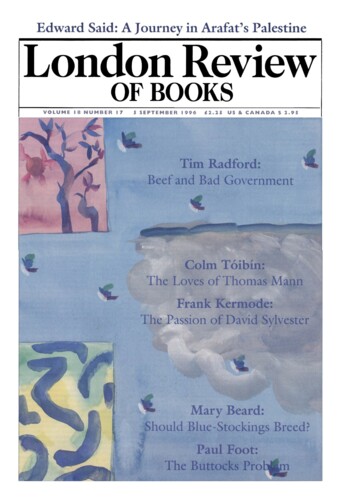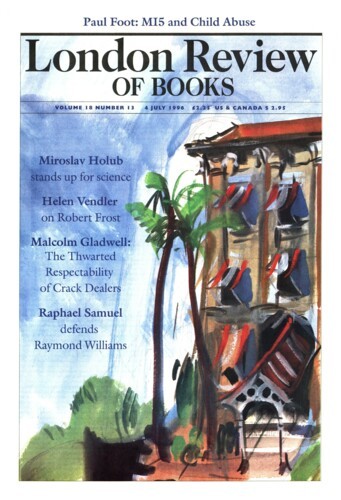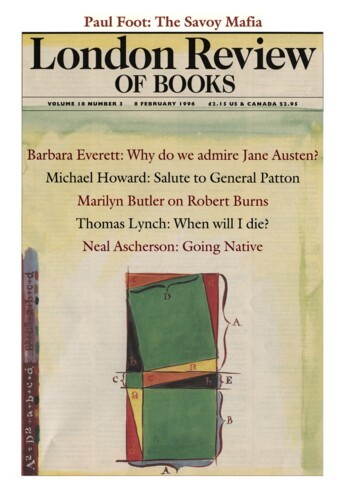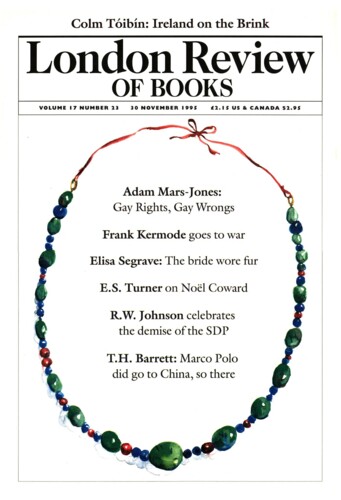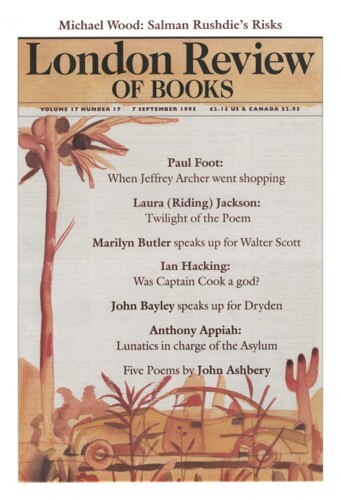Diary: The Buttocks Problem
Paul Foot, 5 September 1996
It’s rare to be able to test a book against one’s own direct experience of its subject-matter. I therefore make full use of mine, as a pupil at Shrewsbury School in the Fifties. In his Foreword to a new biography of Anthony Chenevix-Trench, one-time headmaster of Eton, Sir William Gladstone writes that Trench’s ‘interest was in drawing out the best from boys as individuals’. Another interest, not mentioned by Sir William, lay in drawing down the underpants of boys – as individuals – before ordering them to lie on his sofa while he spanked their bare buttocks. In his Introduction, the author Mark Peel pays tribute to Trench’s ‘common touch’ without referring to his most common touch of all: the sensuous fingering of his pupils’ buttocks before and during the interminable beatings. He goes on to describe Trench’s ‘contribution to the life of the school’, in this case Bradfield:’
